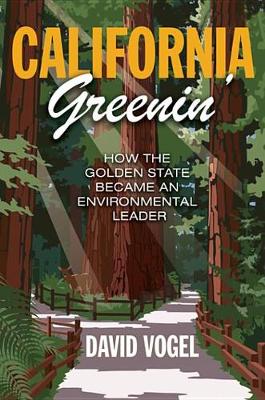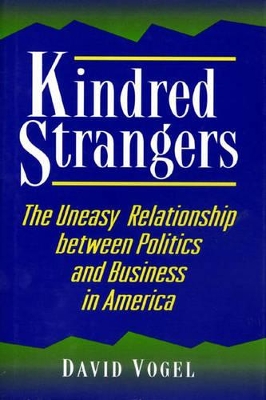Princeton Studies in American Politics: Historical, International, and Comparative Perspectives
2 total works
A political history of environmental policy and regulation in California, from the Gold Rush to the present
Over the course of its 150-year history, California has successfully protected its scenic wilderness areas, restricted coastal oil drilling, regulated automobile emissions, preserved coastal access, improved energy efficiency, and, most recently, addressed global climate change. How has this state, more than any other, enacted so many innovative and stringent environmental regulations over such a long period of time? The first comprehensive look at California's history of environmental leadership, California Greenin' shows why the Golden State has been at the forefront in setting new environmental standards, often leading the rest of the nation.
From the establishment of Yosemite, America's first protected wilderness, and the prohibition of dumping gold-mining debris in the nineteenth century to sweeping climate- change legislation in the twenty-first, David Vogel traces California's remarkable environmental policy trajectory. He explains that this pathbreaking role developed because California had more to lose from environmental deterioration and more to gain from preserving its stunning natural geography. As a result, citizens and civic groups effectively mobilized to protect and restore their state's natural beauty and, importantly, were often backed both by business interests and bystrong regulatory authorities. Business support for environmental regulation in California reveals that strict standards are not only compatible with economic growth but can also contribute to it. Vogel also examines areas where California has fallen short, particularly in water management and the state's dependence on automobile transportation.
As environmental policy debates continue to grow more heated, California Greenin' demonstrates that the Golden State's impressive record of environmental accomplishments holds lessons not just for the country but for the world.
In addition, they place the contemporary dynamics of American business-government relations in both an historical and comparative context. Finally these essays demonstrate e the importance of integrating the study of business by political scientists with the study of politics by students of management. Originally published in 1996. The Princeton Legacy Library uses the latest print-on-demand technology to again make available previously out-of-print books from the distinguished backlist of Princeton University Press. These editions preserve the original texts of these important books while presenting them in durable paperback and hardcover editions. The goal of the Princeton Legacy Library is to vastly increase access to the rich scholarly heritage found in the thousands of books published by Princeton University Press since its founding in 1905.

